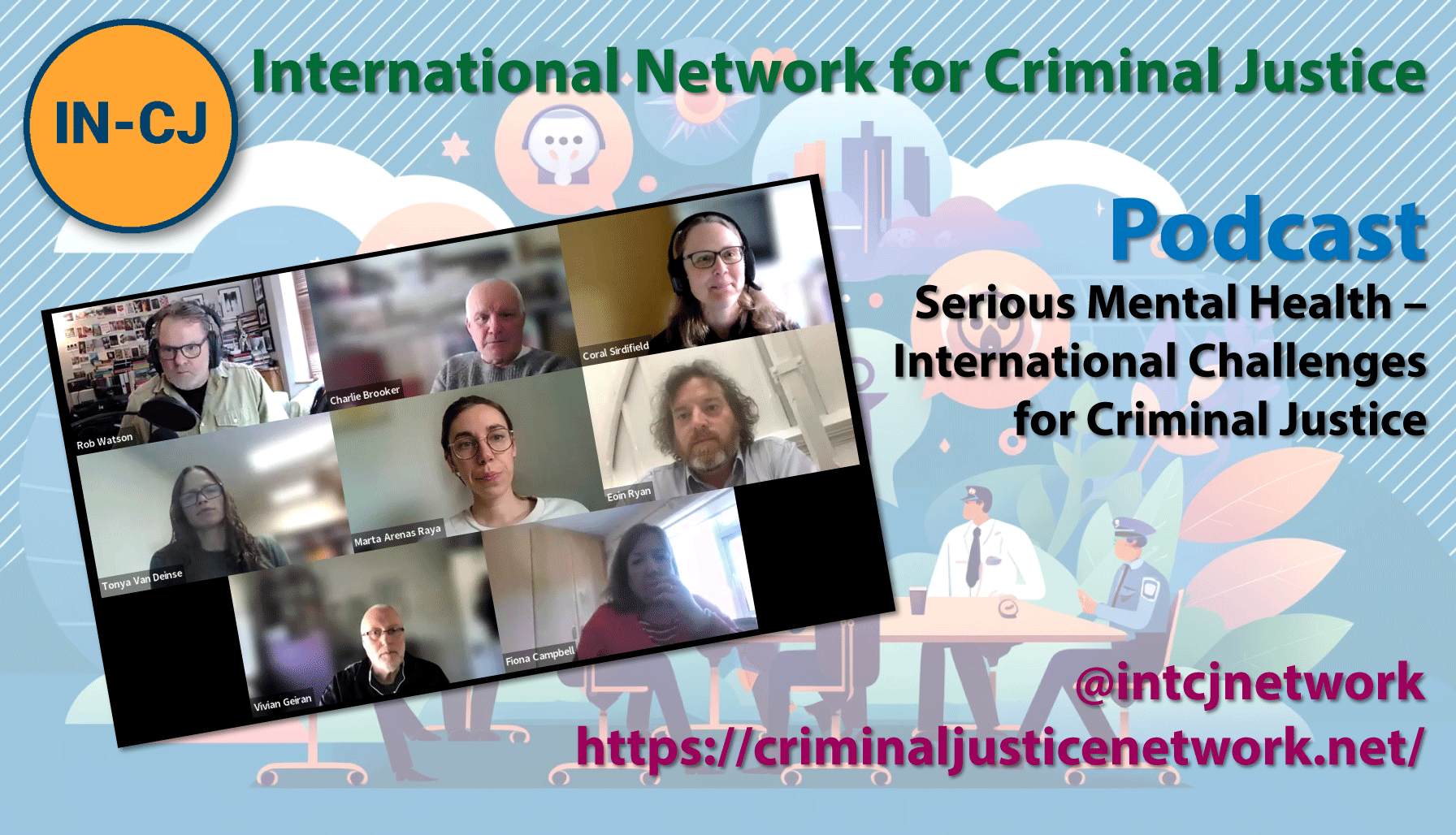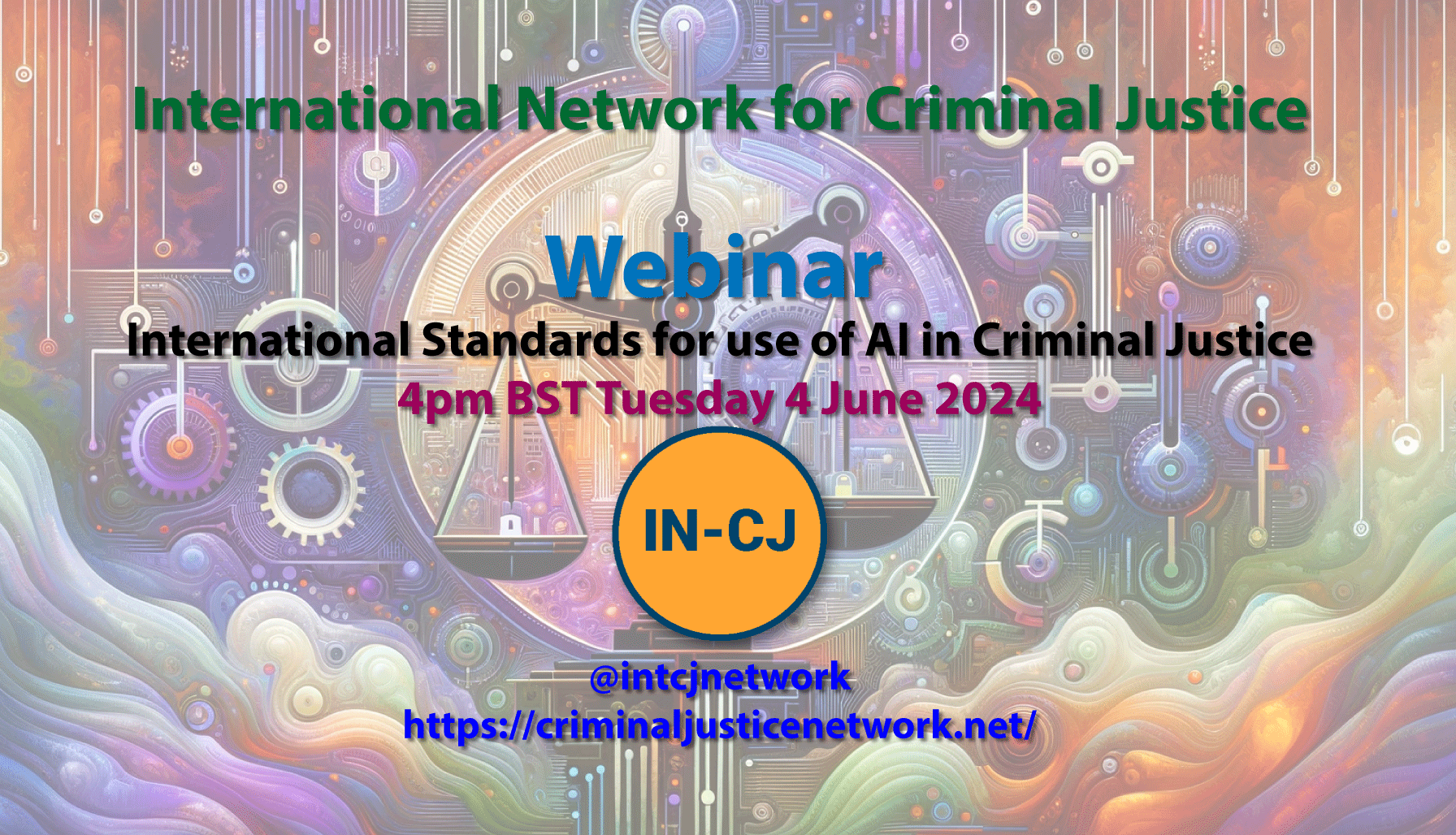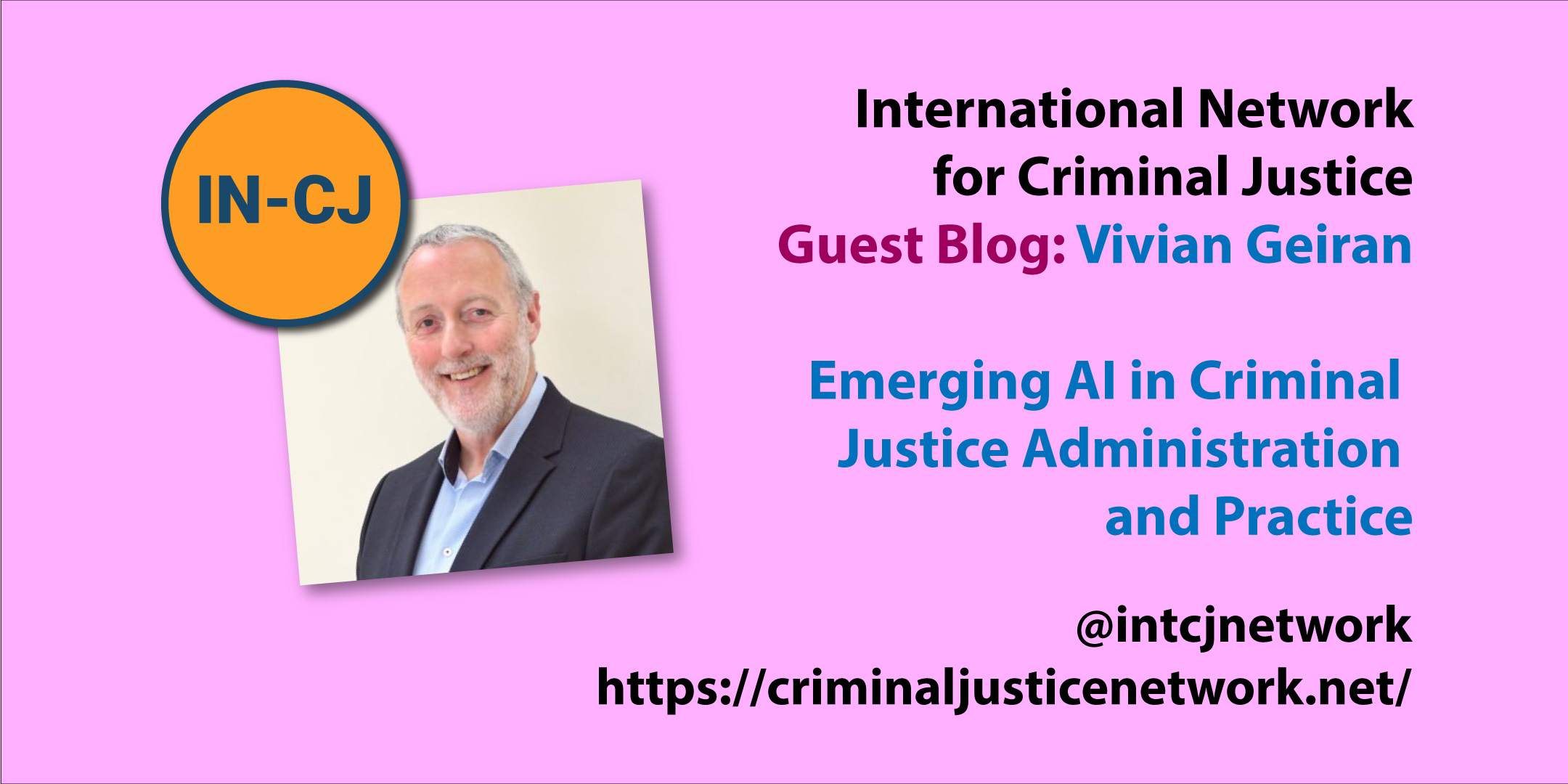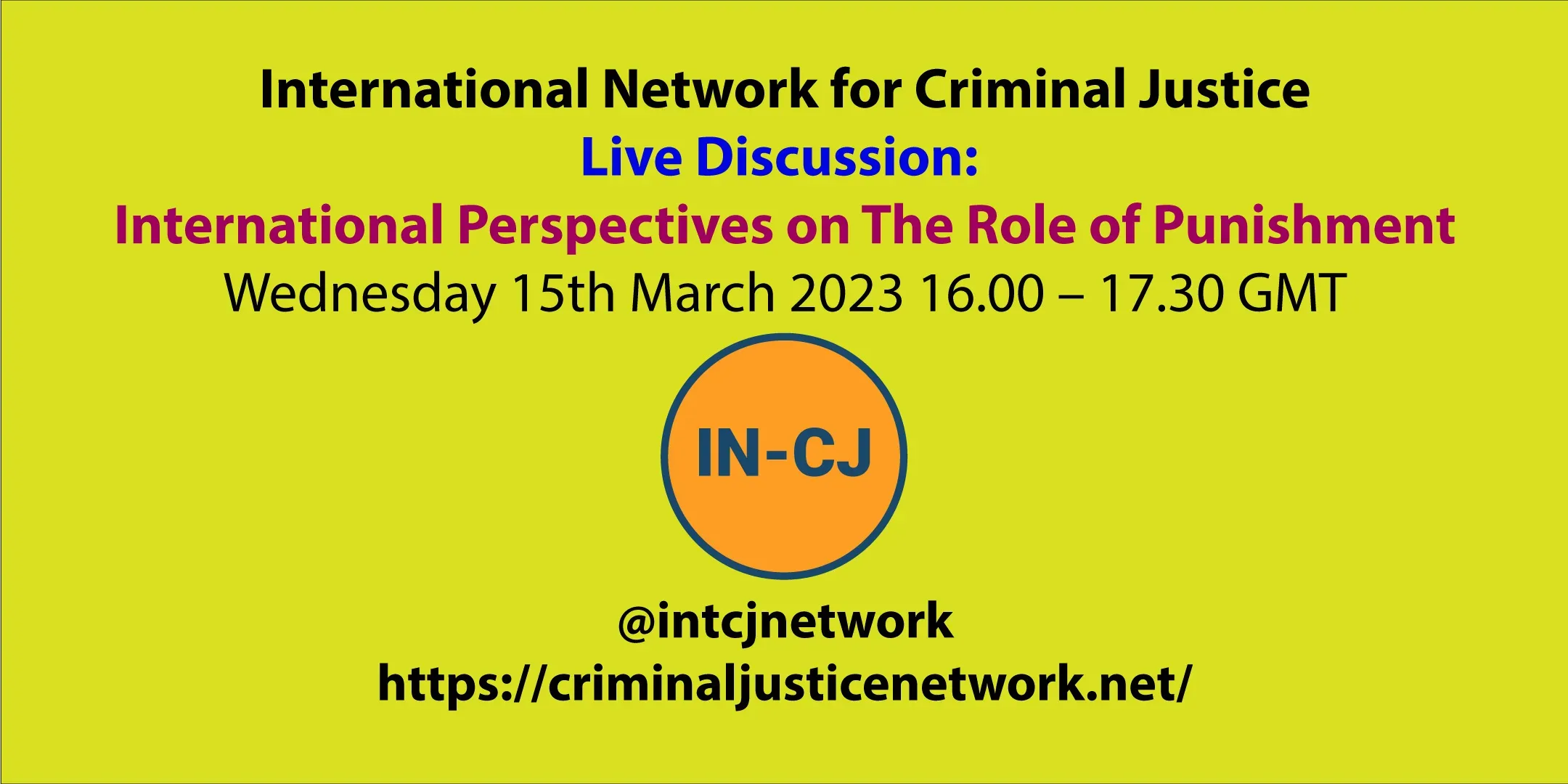IN-CJ Webinar – International Standards for Use of AI in Criminal Justice

Podcast: Play in new window | Download
Subscribe: Apple Podcasts | Spotify | Amazon Music | TuneIn | RSS
As technology continues to influence various aspects of our lives, the integration of artificial intelligence (AI) into the criminal justice system has become a topic of significant interest and discussion. webinar, chaired by Vivian Geiran, adjunct assistant professor at Trinity College Dublin, explored this important subject. Hosted by the International Network for Criminal Justice (INCJ), the event featured experts discussing the development of international standards for AI use in criminal justice, particularly within prison and probation systems.
Vivian Geiran opened the webinar by highlighting the importance of AI in the criminal justice system and the need for proper regulation to ensure its responsible use and rebuild public trust.
Pia Puolakka, a senior specialist and team leader in the Finnish Prison and Probation Service, was the main speaker. Pia, who has a background as a forensic psychologist and psychotherapist, discussed her involvement in developing AI applications for offender management. She shared insights from her work on the Council of Europe’s standards for AI in corrections, focusing on balancing innovation with ethical considerations.
Download Pia’s Slides: INCJ-webinar-AI-Slides-001-2024-06-05
Matt Rowland, former Chief Administrative Officer of the United States Court Service and now a consultant on IT projects, including AI in corrections, provided an American perspective. Matt talked about the current state of AI regulation in the U.S. and efforts to create a consistent regulatory framework.
Steven Van De Steene, an IT systems consultant with experience in digital strategies for corrections, offered a European viewpoint. Steven emphasised the importance of regulatory frameworks and the challenges different jurisdictions face in adopting AI technologies responsibly.
Development of International Standards
The webinar focused on the development of international standards for AI use in criminal justice. Pia discussed the progress made by the Council of Europe in creating the first legally binding treaty on AI. This treaty adopts a risk-based approach to AI design, development, and deployment, aiming to ensure AI applications respect human rights and are used ethically.
Pia then explained the ethical and organisational guidelines proposed for prison and probation services. The recommendations focus on maintaining human dignity, preventing biases, ensuring transparency, and preserving human oversight in AI applications. These principles emphasise that AI should assist, not replace, human decision-making in corrections.
The webinar then highlighted several practical applications of AI in corrections, such as natural language processing, facial recognition, predictive models for behaviour, and virtual reality for rehabilitation. These technologies offer benefits including improved risk assessment, enhanced security, and better offender management.
The panellists discussed the risks and challenges of integrating AI into criminal justice, including potential biases in AI systems, data protection and privacy issues, and the need for regular monitoring and evaluation of AI applications. Ensuring AI literacy among staff and offenders is also crucial to effectively use the technology.
Matt’s insights from the U.S. and Steven’s from a European perspective, highlighted the global impact of AI on criminal justice. While the U.S. is still in the fact-gathering phase, with existing laws being used to address AI-related issues, Europe is moving towards comprehensive regulatory frameworks. Both panellists agreed on the need for a principled approach to AI regulation that balances innovation with ethical considerations.
The webinar provided an overview of the current state and prospects of AI in criminal justice. It emphasised the importance of developing robust, ethical standards to guide the use of AI technologies, ensuring they serve as tools for positive change while safeguarding human rights and dignity. As AI continues to evolve, discussions like these are crucial in shaping a future where technology enhances justice and fairness in our societies.
By bringing together experts from different regions and backgrounds, the INCJ webinar underscored the collaborative effort needed to address the challenges and opportunities presented by AI in criminal justice. Continued dialogue and cooperation will be key to navigating this complex and rapidly changing landscape.






